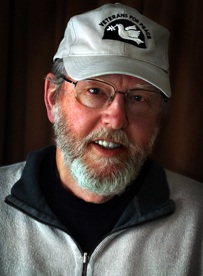In February 2004, Islamic State leader Abu Bakr al-Baghdadi was captured and held by US forces in the Camp Bucca prison for 10 months; he was released in December. We can only presume he was not treated like a first class citizen. Baghdadi's two deputies are former Iraqi generals stripped of power by Paul Bremer, the Kissinger protegee assigned the role of proconsul in the US invasion and occupation. Other leaders in the Islamic State are Sunni veterans of Saddam's army familiar with Anbar Province.
The point is it's impossible to understand the Islamic State unless one realizes it's an entity fueled by grave resentment and vengeance for the strategically stupid imperial blundering the United States did in Iraq. And since, like Iraq War Commander-in-Chief George W. Bush, the United States never can say it's sorry or admit to any wrong doing, you have to wonder whether all the mysterious psychological talk General Nagata and his experts are sharing with the press is not actually a ruse. It seems disingenuous as long as the Bush's Great Imperial Blunder is not considered in a cause and effect role.
A cursory look at the Middle East, North Africa and Southwest Asia should make it clear that many powerless, struggling elements in that part of the world tend to fall back on ethnic and religious roots as ideological fuel to sustain their struggle. One of the prime functions of religion is to explain the mystery of death, to place one's inevitable death into a larger narrative of meaning. When life reaches rock bottom, religion helps make sense of it all. People in Muslim lands are no different. Religion can be a major motivator for a crusade against oppressive demons. Events like the Iraq War have made us a demon for many. For us in the US, our self-perceived exceptionalism has become a religion.
Virginia Postrel says what General Nagata calls the "magnetic attraction" of the Islamic State can be quite compelling. "The result is a 21st-century Islamic version of the medieval Christian Crusades. Islamic State promises ordinary men adventure, fellowship and religious significance if they fight infidels and heretics in a distant land."
Full disclosure, for anyone who might think otherwise, I detest ISIS or the Islamic State. Killing and chopping off heads as a way to advance one's interests is repugnant to me. But so is the rash invasion and occupation of a nation that, despite its gangster leader and the embargo, had a lot going for it. Before the Gulf War, Iraq was approaching first world status in some areas. When I was in Baghdad in December 2003, I ran into many educated and sophisticated Iraqis who told me Saddam was, indeed, a monster, but that if you went about your business and stayed out of politics life was good. Our invasion tossed a huge bomb into that state of affairs. We wrecked the place. We turned it from an imperfect nation into a festering wound that's far more dangerous now than it was in early 2003. Actions have consequences.
The Islamic State is, more than anything, a symptom of that grave wound inflicted by the United States on Iraq. General Nagata and his experts no doubt talk realistically about this in secret. It's only a great enigma in the public relations realm. We all know by now that embarrassment is the primary cause for most secrecy. That's true today in spades. Our military institutions now deal with US citizens in two very distinct modes: Secrecy or Public Relations. Wikileaks, Edward Snowden and James Risen work in the no-man's in between those two modes. General Nagata's notion of a great mystery is probably a PR tack. Don't think cause and effect; think mystery. Everybody loves a good mystery.
The brilliant Stanley McChrystal, for instance, was a master at straddling this divide. During the Shock & Awe invasion, he was the charming one-star PR officer who gave the daily press briefing. Other talents soon became evident and he shot up the ranks to four stars. He led the deeply secret operation in Anbar Province assigned to lop off the heads of the Sunni insurgency our invasion had flushed out. He turned a sluggish intel operation into a streamlined effort that could analyze laptops, phones and documents obtained in night raids and parlay the information gained into three or four more raids before the sun came up. Many of these raids were to kill leaders of the insurgency. Torture was a tool. Reportedly, men and women wore civilian clothes with no rank and used fictitious names -- all to make accountability difficult to impossible. Before his effort became public it was known among reporters as "the Salvadoran option." Salvadoran for death squads.
The so-called "surge" was about a lot more than additional troops. It was a ruthless campaign to hunt down and kill people who had been designated in the common argot of our times as "terrorists." In the minds of the people hunted, they were brave individuals fighting an invading force. (Consider how you'd feel if someone invaded your neighborhood and kicked in your door at 3 AM.) A friend of mine was in the army at a base in Abu Ghraib, the town where the notorious prison was located. He told me, "I must have kicked in a thousand doors." He also told me it eventually dawned on him the only reason his unit was being attacked was because he was in the town kicking in doors.
(Note: You can view every article as one long page if you sign up as an Advocate Member, or higher).




